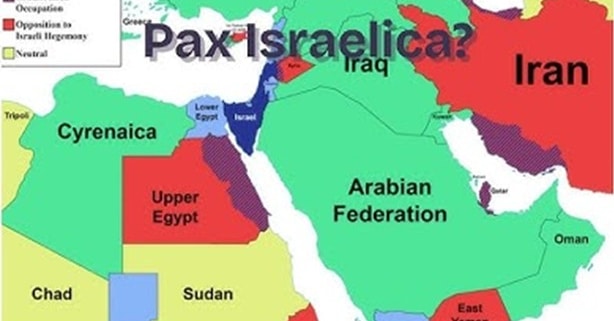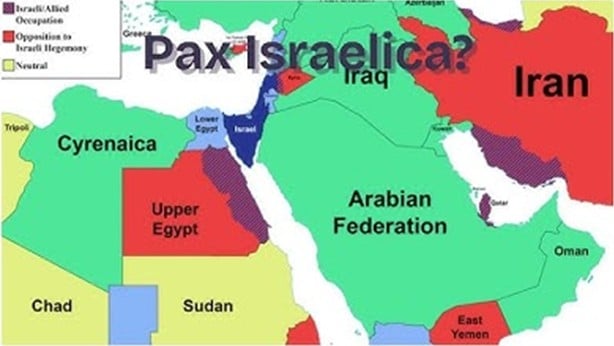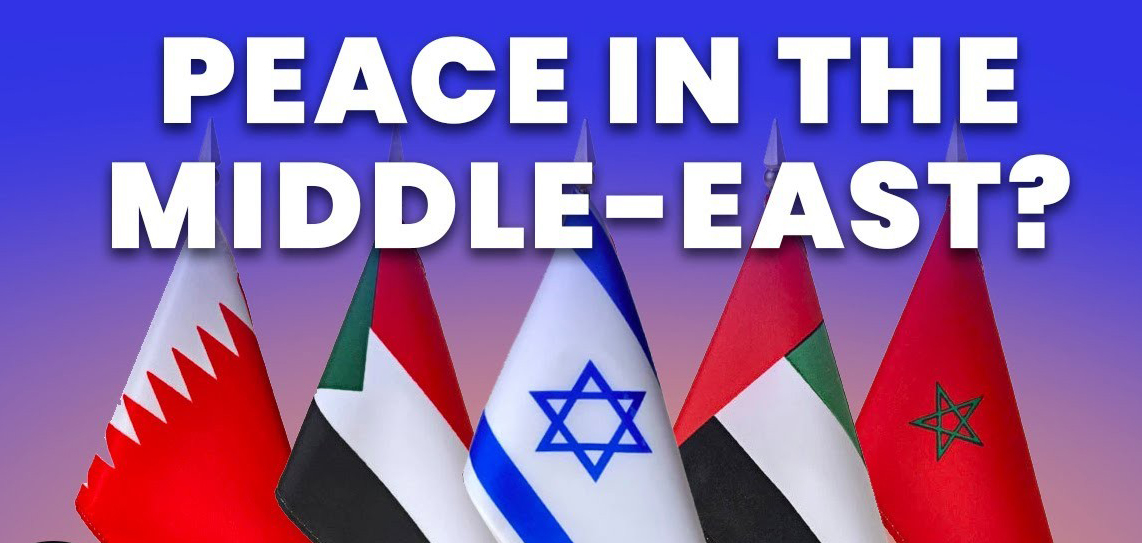
The New Middle East: Pax Israelica?
Has Israel become the superpower of the Middle East?
Published: July 21, 2025
On October 6th, 2023, the eve of the October 7th attacks, Israel faced perhaps its most perilous strategic environment in half a century. Hamas was poised to launch its deadliest assault since the Yom Kippur War of 1973. To the north, Hezbollah boasted 100,000 trained fighters and an estimated arsenal of 120,000 missiles. Iran stood dominant, its nuclear weapons program advancing and its regional influence expanding, backed by the Houthis in Yemen, militias in Iraq, Assad in Syria, and its proxies in Gaza and Lebanon. This “Ring of Fire” encircled Israel, threatening overwhelming retaliation should it strike Iran’s nuclear facilities. Meanwhile, President Joe Biden was seen as a restraining force on any Israeli pre-emptive action.
Less than two years later, that landscape is unrecognisable. Hamas, Hezbollah, the Houthis, Iraq’s militias, and Assad’s Syria have either severed ties with Iran, been severely degraded, or ceased to pose serious threats. Iran itself endured a humiliating twelve-day war that crippled its air defences, damaged its nuclear infrastructure, and exposed its vulnerability to Israeli military supremacy. Despite years of anti-Israel rhetoric, when the confrontation came, Tehran’s fury proved futile.
This dramatic reversal has led some to dub the new era “Pax Israelica,” or as Le Monde’s Gilles Paris styled it, “Pax Hebraica.” A “Pax,” as defined by Merriam-Webster, is “a period of general stability in international affairs under the influence of a dominant military power.” Like Pax Romana or Pax Americana, it marks an era where one power’s dominance enforces regional peace.
Paris wrote that in mere months, Israel has become “the sheriff of the Middle East.” He described Israel’s bombings as “a final epitaph to the blindness of Hamas leader Yahya Sinwar,” who, in his miscalculation, dismantled the entire “axis of resistance” carefully cultivated by Iran over decades.
The October 7th war elevated Israel from a marginalised presence to a respected regional superpower. That does not mean every neighbouring nation suddenly embraces Israel, but it does suggest a shift in geopolitical calculus. Opposing Israel now appears self-defeating, while cooperation might enhance national interests and global influence. The prospect of Syria joining the Abraham Accords, once laughable, is now a subject of serious discussion. As for Saudi Arabia, its accession to the Accords feels less like an “if” and more like a “when.”
Recent events in southern Syria underscore this new reality. Following internal clashes involving the Druze community, Israel intervened militarily to stabilise the region. Syria responded not with defiance, but with negotiation. Reuters reported that Israel had agreed with the Syrian government to allow Syrian troops into Sweida for 48 hours to quell the unrest. The notion of Israel dictating military deployment within sovereign Syrian territory would have been unthinkable in decades past. That kind of influence, commanding terms over another state’s internal affairs, is the hallmark of a superpower. For comparison, it echoes the United States’ sway over Ukrainian wartime decisions.
 If indeed we are witnessing the emergence of a Pax Israelica, then Israel is not just surviving, but imposing peace, a long-anticipated development for Bible students. The modern rebirth of Israel in 1948 and its capture of Jerusalem in 1967 fulfilled prophecy, but lasting peace always seemed elusive. Ezekiel 38 speaks of Israel as “a land of unwalled villages… dwelling safely.” That has never yet described Israel.
If indeed we are witnessing the emergence of a Pax Israelica, then Israel is not just surviving, but imposing peace, a long-anticipated development for Bible students. The modern rebirth of Israel in 1948 and its capture of Jerusalem in 1967 fulfilled prophecy, but lasting peace always seemed elusive. Ezekiel 38 speaks of Israel as “a land of unwalled villages… dwelling safely.” That has never yet described Israel.
For decades, the Israeli-Palestinian conflict has served as a convenient tool for regional powers. Palestinians remain uniquely designated as perpetual refugees, unable to assimilate, their plight prolonged by external actors who simultaneously fuel and exploit the conflict. It stands to reason that those who sustained it could also dismantle it, if political will aligns.
In a wholly different context, Lenin observed, “There are decades where nothing happens, and weeks where decades happen.” That sentiment fits the velocity of change in the Middle East today. We may be witnessing the unfolding of an era once thought inconceivable, a Pax Israelica where Israel not only secures peace but embodies regional leadership.
A recent Jerusalem Post headline declared, “Israelis now safer than at any other time in a generation.” And so we recall the biblical warning, perhaps first spoken of AD 70 but echoed today: “When they shall say, Peace and safety; then sudden destruction cometh upon them… Therefore let us not sleep, as do others, but let us watch and be sober.”
Peace must come to the Middle East prior to Christ’s Return and the Battle of Armageddon, the Bible is very clear on this as Ezekiel 38 shows. Ezekiel 38 describes the Battle of Armageddon and the situation Israel at that time and it says that when Gog and Magog (Russia and Europe) come down to invade Israel will be a land at peace with “unwalled villages” which is a long way from anything we have seen so far. This is what we read…
38 shows. Ezekiel 38 describes the Battle of Armageddon and the situation Israel at that time and it says that when Gog and Magog (Russia and Europe) come down to invade Israel will be a land at peace with “unwalled villages” which is a long way from anything we have seen so far. This is what we read…
The word of the Lord came to me: 2 “Son of man, set your face against Gog, of the land of Magog, the chief prince of Meshek and Tubal; prophesy against him 3 and say: ‘This is what the Sovereign Lord says: I am against you, Gog, chief prince of Meshek and Tubal. 4 I will turn you around, put hooks in your jaws and bring you out with your whole army—your horses, your horsemen fully armed, and a great horde with large and small shields, all of them brandishing their swords. 5 Persia, Cush x and Put will be with them, all with shields and helmets, 6 also Gomer with all its troops, and Beth Togarmah from the far north with all its troops—the many nations with you.
10 “ ‘This is what the Sovereign Lord says: On that day thoughts will come into your mind and you will devise an evil scheme. 11 You will say, “I will invade a land of unwalled villages; I will attack a peaceful and unsuspecting people—all of them living without walls and without gates and bars. 12 I will plunder and loot and turn my hand against the resettled ruins and the people gathered from the nations, rich in livestock and goods, living at the center of the land.”
So one of the key outcomes we can expect to see from the recent wars is more Arab countries joining the Abrahamic Accords and settling for Peace and Prosperity instead of war.
This has been Presidents Trumps goal from his first term when he established the Abrahamic Accords, will he now bring Peace to the Middle East.
![]()
